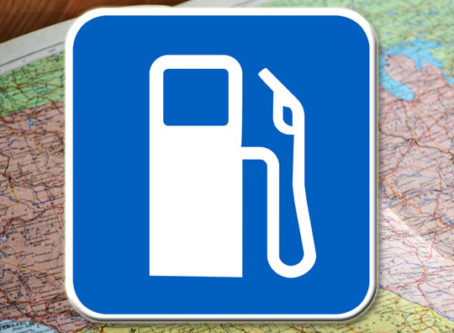Regional emergency declaration ordered by feds
Because of severe winter storms and the high demand for heating fuel, propane, natural gas and heating oil, the Federal Motor Carrier Safety Administration has declared a regional emergency covering 44 states and Washington, D.C.
FMCSA’s order granted relief from maximum driving times for property-carrying vehicles for motor carriers and drivers transporting the fuel commodities.
This emergency is effective immediately and will remain in effect until Jan. 6. The only states not included in the declaration are Arizona, Alaska, Florida, Hawaii, Nevada and New Mexico.
Motor carries or drivers subject to an out-of-service order are not eligible for relief granted by this declaration until that order has been rescinded in writing by the issuing jurisdiction.
Motor carriers operating under the emergency declaration are subject to the following restrictions and conditions:
- Nothing in this emergency declaration shall be construed as a waiver of or exemption from any applicable requirements or any portion of the FMCSRs (49 CFR Parts 350-399) including the controlled substance and alcohol uses and testing requirements (49 CFR Part 382), the commercial driver’s license requirements (49 CFR Part 383), or the financial responsibility (insurance) requirements (49 CFR Part 387); Federal Hazardous Materials Safety Regulations (49 CFRParts 100-180); vehicle size, and weight limitations, as well as route designations administered by the Federal Highway Administration (23 CFR § 658; 23 U.S.C. 127; 49 U.S.C. §§ 31111-31115); or any other regulations for which relief is not specifically granted herein.
- Motor carriers or drivers currently subject to an out-of-service order are not eligible for the relief granted by this emergency declaration until they have met the applicable conditions for its rescission and the order has been rescinded in writing by the issuing jurisdiction.
- This emergency declaration provides for regulatory relief from 49 CFR § 395.3 for commercial motor vehicle operations while providing direct assistance supporting emergency relief efforts.
- Direct assistance terminates when a driver or commercial motor vehicle is used in interstate commerce to transport cargo or provide services that are not in support of emergency relief efforts related to the emergency as set forth in this emergency declaration, or when the motor carrier dispatches a driver or commercial motor vehicle to another location to begin operations in commerce. (49 CFR § 390.23(b)).
- Upon termination of direct assistance to emergency relief efforts related to the emergency as set forth in this emergency declaration, the motor carrier and driver are subject to the requirements of 49 CFR § 395.3 while operating commercial motor vehicles, except that a driver may return empty to the motor carrier’s terminal or the driver’s normal work reporting location without complying with 49 CFR § 395.3, except as noted herein.
- When a driver is moving from emergency relief efforts to normal operations, a 10-hour break is required when the total time a driver is engaged in emergency relief efforts, or in a combination of emergency relief and normal operations, equals or exceeds 14 hours.
North Carolina
North Carolina also suspended certain motor vehicle regulations because of the period of prolonged cold weather and increased demand for drivers of propane and other heating fuel.
WTVD-TV in Durham, N.C. reported extreme cold temperatures were expected to begin on Friday, with wind chills dropping into the teens.
An executive order, effective for 30 days, said the anticipated impact of forecasted weather and increased demand on drivers constitute a state of emergency.
“Certain measures are necessary to ensure the protection and safety of North Carolina residents and to coordinate the emergency response among state and local entities and officials,” the order said. “The uninterrupted supply of fuel oil, diesel oil, gasoline, kerosene, propane and liquid petroleum gas to residential and commercial establishments is essential, and any interruption in the delivery of those commodities threatens the public welfare.”
This declaration waives maximum hours of service under 49 CFR Part 395.3 and N.C. General Statute § 20-381, for drivers transporting propane and essential heating fuels in the emergency area.
The following guidelines apply under this order:
- Upon request by law enforcement, exempted vehicles must provide documentation to establish their loads are for use in supporting emergency relief efforts.
- Direct assistance terminates when a driver or commercial motor vehicle is used in intrastate/interstate commerce to transport cargo or provide services that are not in support of emergency relief efforts, or when the motor carrier dispatches a driver or commercial motor vehicle to another location to begin operations in commerce.
- When a driver is moving from emergency relief efforts to normal operations, a 10-hour break is required if the total time a driver operated, whether emergency relief or normal operations, equals or exceeds 14 hours.
Excessive pricing is prohibited by the enacting of this emergency declaration.
Colorado and South Dakota recently issued similar fuel-related emergencies. LL
More Land Line coverage by state.









